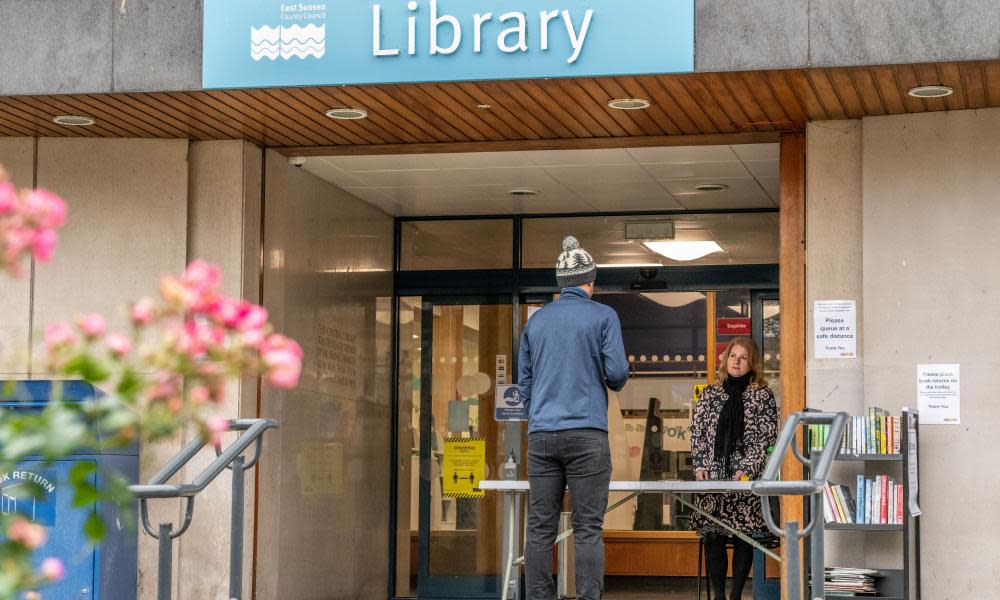UK’s public libraries record another year of cuts, with yet more on the way

The struggles of the UK’s public library service continue apace, with total funding for libraries in Britain down by nearly £20m in the year to March, immediately before the lockdown that saw libraries handling a rapid increase in demand for their services, which were eventually deemed essential by the government.
Annual figures from the Chartered Institute of Public Finance and Accountancy (Cipfa) show that the number of books borrowed from libraries in the year to March 2020 – before the pandemic closed branches – fell by almost 9m year on year, to 166m. Public funding also fell by almost £20m, to £725m. In 2010, it had topped £1bn.
Related: Why lockdown was the plot twist that libraries needed | Krystal Vittles
Librarians warned about the impact of the cuts, particularly in the face of the pandemic, during which many branches have increased ebook availability and online services to meet demand. In October, charity Libraries Connected reported that more than 3.5m additional ebooks were borrowed between the end of March and mid-August 2020, an increase of 146%. Adding audiobooks and e-comics, there was an increase of 5m digital items borrowed.
Isobel Hunter, chief executive of Libraries Connected, said: “We know that even before the current crisis, many local authorities were struggling financially and this is reflected in the cuts to library spending. However, even more concerning is that our members have told us that that they are now facing even larger cuts – with an average reduction of 14% in their budgets for next year.”
She said the cuts would inevitably have an impact on the people who need libraries most, estimating that England alone faced a £4m funding gap due to the increased demand for libraries in 2020.
“Libraries are high-profile local services that make valuable impacts on people’s lives, yet cost an average of just 0.6% of council spending. Adequate, sustained investment is essential if they are to play their full part in ensuring our communities recover from this crisis,” she added.
At Cilip, the UK’s library and information association, chief executive Nick Poole said the cuts were “disappointing, but not surprising”.
“2020 has been an incredibly tough year for everyone, but I am immensely proud of the way in which our public libraries have risen to the challenges presented by Covid-19,” he said, calling for the UK government to provide more funding to “enable them to invest in the staff and digital services which have kept this country going throughout lockdown”.
He added: “If the government believes, as we do, that libraries are indeed an essential service – and the regulations for public libraries during England’s second lockdown suggests that they do – then they need to be treated and funded as such.”
The number of borrowers was also down, the Cipfa figures revealed, to 7.3m from 7.5m the previous years, while the number of branches still open was 3,667, down by 18 from the previous year. The decline in visits was blamed on the increasing paucity of stock held by UK libraries, which has shrunk to around 73m books; in 2008, it was over 100m.


